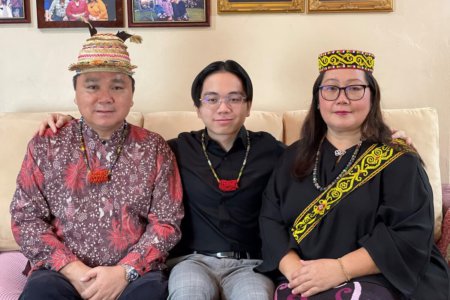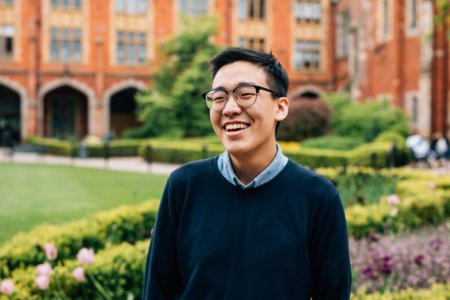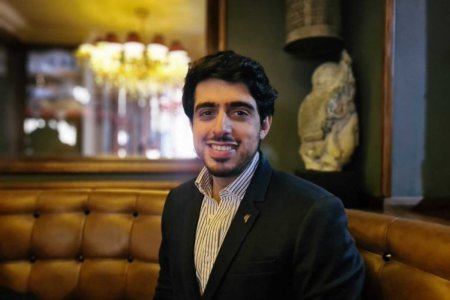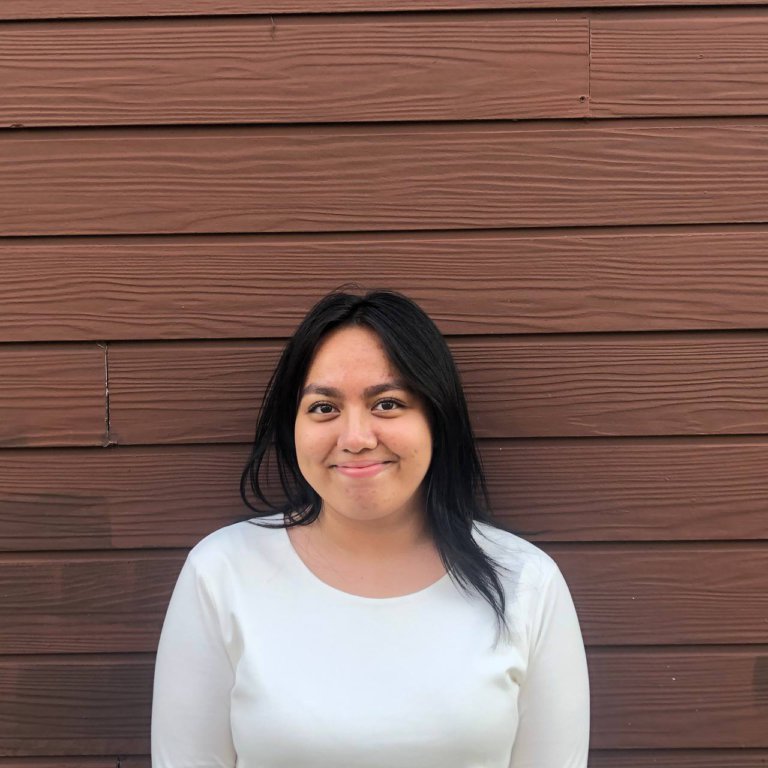
It’s the stuff of dreams you see in films — you get a letter or an email after months of anticipation. Then it finally dawns: you’re going to Harvard University. You’re joining the ranks of the world’s brightest minds, in a year of record-low acceptance rate of 3.19%. Somehow, you’ve made it, and your journey is just beginning.
This is the new reality for Malaysian student Carisma Michaela Wong, who hails from Kota Kinabalu, a small coastal city in East Malaysia. She is among six candidates from her country accepted into Harvard College’s Class of 2026. For Wong, the announcement was a delightful surprise that came at the right time.
“The funniest thing about all this is that I had no offers before Harvard,” she laughed, recalling her nerves as her peers were getting admission letters to prestigious universities left and right. “I’d been so incredibly stressed out throughout the decision season. I was happy for my peers, who’ve at least gotten one offer, but that didn’t take away my fears of wondering if I’d be able to go overseas, or if I had to drop my scholarship.”
1. Six Malaysians have been accepted into Harvard College, the largest number in a single cohort in Malaysia’s history.
The acceptance rate for the class of 2026 is the lowest in the school’s 386-year history, at 3.19%, said Harvard College Alumni Interviewers For Malaysia. pic.twitter.com/1uJ76HzDZs
— BFM News (@NewsBFM) April 5, 2022
Wong is en route to finishing her A-levels at Kolej Yayasan UEM (KYUEM) in her home country under the Khazanah Global Foundation scholarship, a prestigious award that fully funds accomplished Malaysian high school leavers to the world’s top-ranking universities throughout their studies.
After being promptly rejected by Oxford and Yale University in the early action round, Wong knew she had to play her cards differently with her Harvard application. “Honestly, I’m really happy I didn’t apply to Harvard University early because after getting rejected from Yale, I really worked up my application quite a bit.”
She was waitlisted by the University of California at Los Angeles and Berkeley campuses, Stanford, and Princeton. Across the pond, it’s all silence from her other applications — the London School of Economics, the University of Edinburgh, University College London, and King’s College London.
Coming from a modest family, the Ivy League wasn’t in the line of sight for Wong growing up. “I wasn’t trained to enter Harvard from the age of 10 or anything. I come from a background that I think is relatively ‘normal’, and for me to enter Harvard, I hope it shows that this type of thing is possible even if it seems far-fetched.”
From small-town success to Harvard University candidate
So, how does a small-town lass get into Harvard?
Humility, for one. Wong’s years in Stella Maris Secondary School — just down the road from where she grew up all her life — were marked with consistent excellence in her studies and co-curricular pursuits. Though she emerged as a top scorer when finishing high school, Wong never thought that she’d get this far after graduation.
“Getting a scholarship was like a mystical dream. I didn’t know much about it until application season came by after the national exams ended,” she reflected. “I had a vague sense of what I wanted to do. I applied to local public and private universities and received some offers. I remember thinking, ‘Wow, I’m going to have the best time!’. Many of my friends were going there.”
Going overseas wasn’t expected of her, although she did nurse a bit of hope to study abroad. “Throughout the scholarship application stage, I knew whatever route I took would be a good one for me, and I would’ve found some sort of happiness for myself regardless of the outcome.”
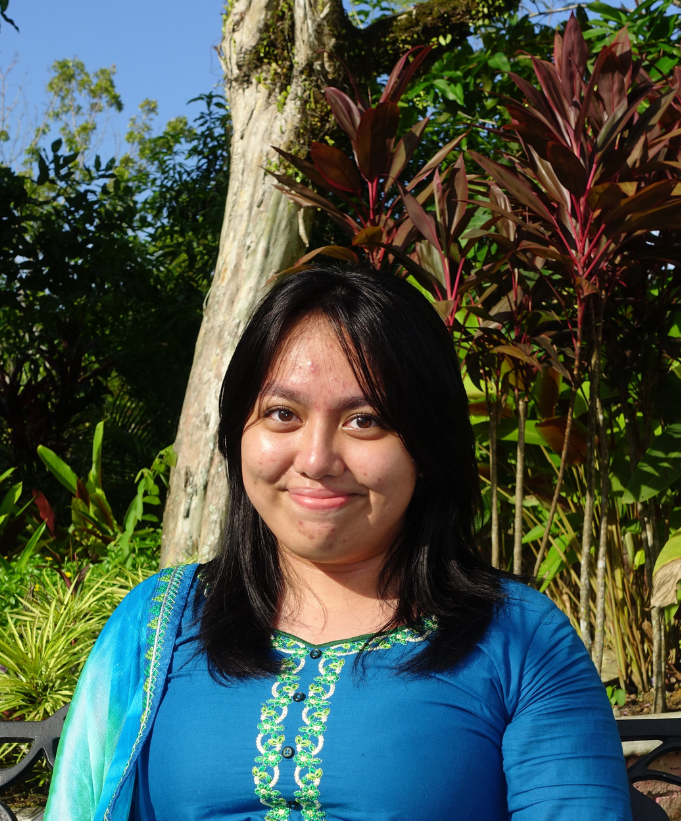
Coming from a humble background in Tanjung Aru, a small sub-district of the East Malaysian city of Kota Kinabalu, the Ivy League seemed like a far-off dream for a student like Wong. Source: Carisma Michaela Wong
Her brilliance would not go unnoticed, however. Wong received multiple private scholarship offers to go abroad, but ultimately chose her current one due to its distinction and flexibility in course selection.
That proved to be a turning point in her life. KYUEM and A-levels became a different ball game altogether. The Malaysian pre-university college is known for preparing high-achieving students at the national level to enter Oxbridge, the Ivies, and other top universities worldwide. Being among the most gifted students in the country led to newfound confidence in her capabilities.
“I have to admit that I definitely come from a sort of very strange bubble here in this school. Applying to these universities is such a dissonance from real life,” she added. “It’s strange coming here and having all of these things expected of you.”
Having resources available just at the tip of her fingers helped demystify the Ivy League application process. “Here, we’re normalised to apply to these big names. I think that is reflective of the type of bubble and demographic that I’m mingling with at the moment. Applying to Harvard just didn’t seem like such a huge challenge as it would be otherwise.”
Coming from a humble background gave her a unique perspective on the application process. Wong is well aware of the inequities and inaccessibility that cut off so many deserving students from studying abroad. “I definitely think that’s a mindset that these things are deemed impossible,” she says.
Applying to Harvard University: A “lesson in self-reflection”
Having no offers from other universities kept her grounded on her bid for acceptance from Harvard University. It was a calculated campaign from start to finish, with many discoveries along the way.
The history lover expressed interest in studying economics, government, and sociology in her application, which will help her pursue her intended career in policy research. Ever the studious learner, Wong dedicates her time to researching the history of her home state of Sabah to better understand where she comes from.
“One thing that I talked about quite a bit in my application is my independent research on Sabahan political history. It sounds a lot fancier than it really is. It’s really just me, lurking around in libraries and visiting archives for scraps of newspaper which nobody else would find exciting,” she explained jokingly.
Wong’s niche interests stem from navigating her own identity in a multiracial country. For all her intellectual pursuits, it was her authenticity in finding a sense of belonging that formed the heartbeat of her personal essay to Harvard. As someone of mixed Chinese, Punjabi, and indigenous Kadazan-Dusun descent, Wong often struggles to feel like she belongs in the spaces she occupies.
“I know ‘authenticity’ sounds like a contrived thing to say, but my personal essay was about how I didn’t feel like I belonged in this academic space, which is filled with kids who are trained to earn scholarships from such a young age. A lot of my comments were about deconstructing that feeling,” she explains.
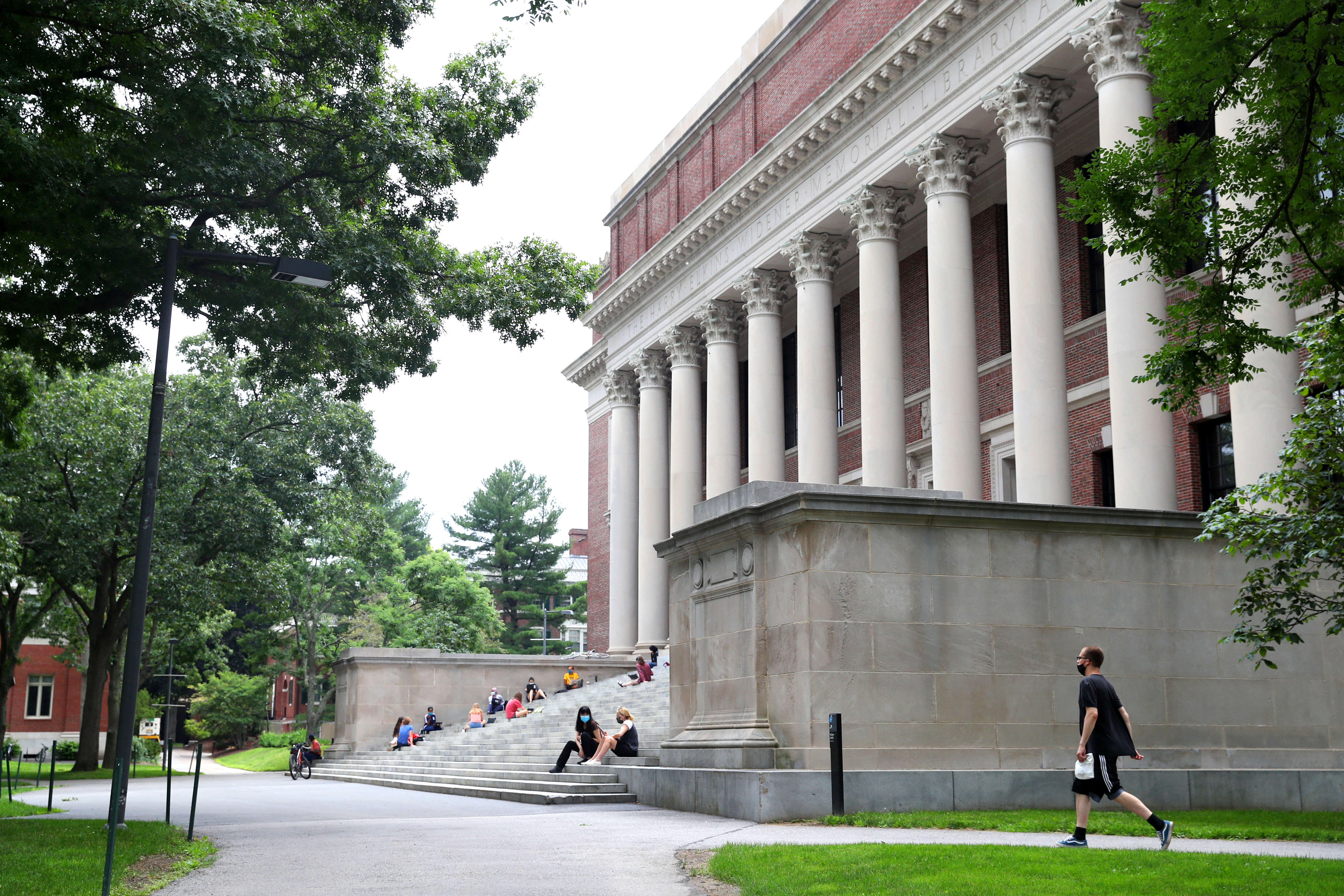
Harvard College’s acceptance rate for the class of 2026 was 3.19%, a record-low number that went down from 3.43 percent last year. Source: Maddie Meyer/Getty Images North America/Getty Images via AFP
Simply stating the problem isn’t enough, as college entrance essays often require applicants to state how they overcame their situation. This was where Wong struggled the most in her essay. “Throughout the writing process, I was thinking of what I did to overcome my lack of belonging. I’d been so passive; I felt like I didn’t really do anything. Then I realised that a shift in perspective was all I really needed.”
Through academic advising and scholarship workshops, Wong was finally able to eloquently express her thoughts. “A counsellor told me it’s a choice to stay and not run away from the fear that I wasn’t deserving of this application and scholarship. So I made the choice to stay, to carve a space for people like me who didn’t have the support and someone to look up to at this level.”
“That’s how I circumvent the problem of not feeling like I belong. I concluded the essay by acknowledging that my fears were reflective of real systemic inequities,” she added. “The whole process has been a lesson in self-reflection. I learned so many things about myself that I didn’t even know when I began my application.”
Wong’s Cinderella story of getting into Harvard turned her into an overnight celebrity of sorts. She’s been approached by national media for interviews, and sometimes gets stopped by juniors in her college who take inspiration from her journey.
When asked to dispense sage advice for students who wish to follow in her footsteps, Wong replies in her typical humbleness and charm. “You know, I never went in with a mindset that it’s a given I’m going to get into an Ivy League school. It’s a sort of measured optimism: go in with realistic expectations that you might not get in, and make peace with not getting an offer.”
That doesn’t mean one shouldn’t seize the chance, even if it looks tedious. “I know some people think it’s so much energy and time to put into an application to Harvard — and that’s an important thing to acknowledge — but you have nothing to lose by trying.”
It clearly paid off for Wong, where a life-changing journey awaits her in just a few months.








